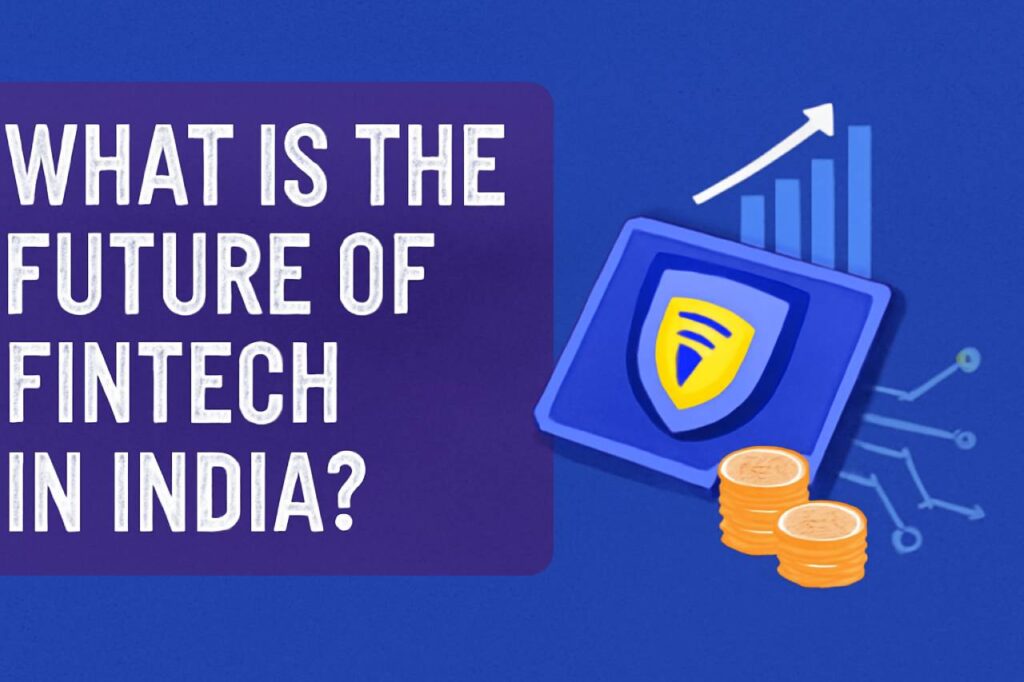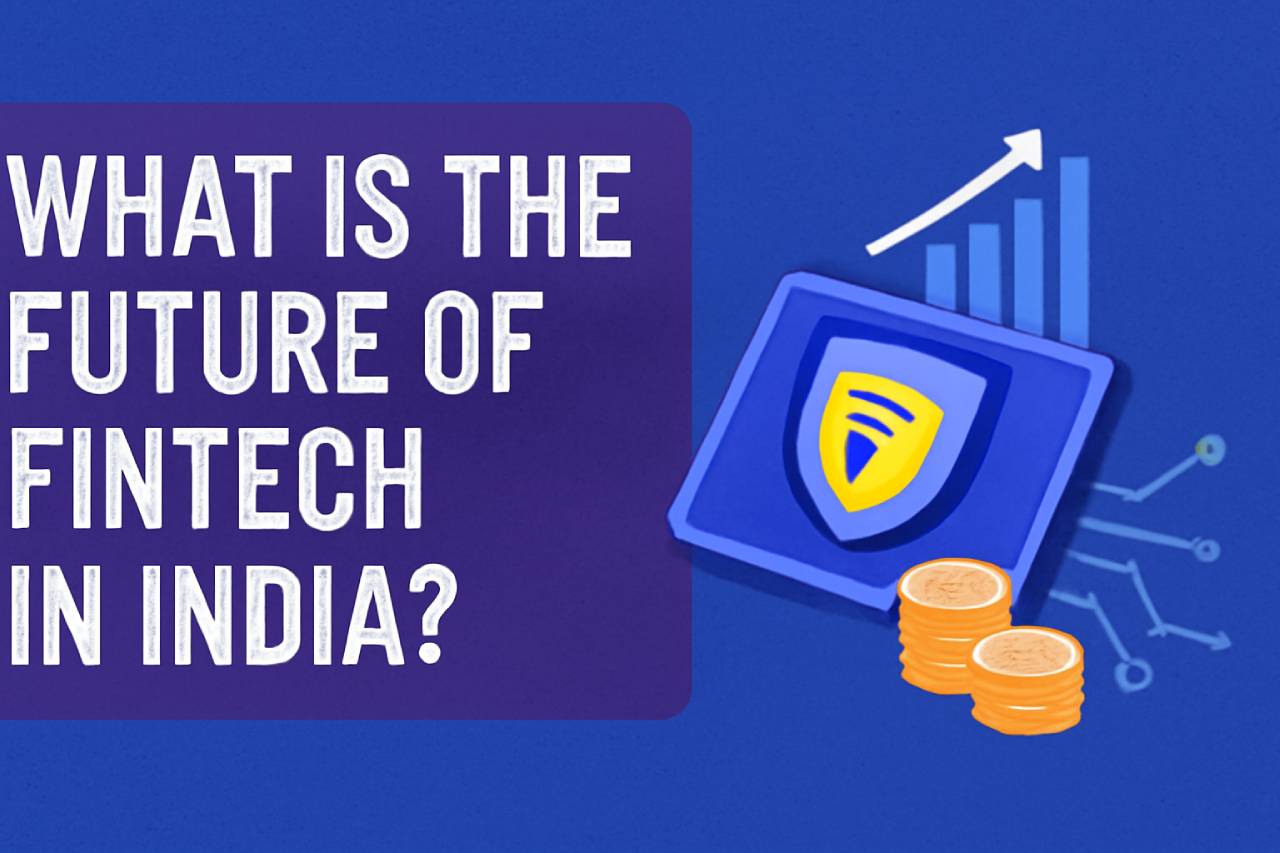The FinTech landscape in India is rapidly evolving, driven by technological advancements, regulatory support, and a growing demand for digital financial services. As we look toward the future, it is essential to understand the key trends, challenges, and opportunities that will shape the industry in the coming years. This article explores the future of FinTech in India, highlighting the factors that contribute to its growth and the potential it holds for various stakeholders.
The Current State of FinTech in India
India’s FinTech sector has witnessed remarkable growth over the past few years. As of 2023, the market is valued at approximately $584 billion, with projections indicating it could reach $1.5 trillion by 2025. This growth is fueled by several key segments, including digital payments, lending, insurance technology (InsurTech), and wealth management.

Key Segments Driving Growth
- Digital Payments: The Unified Payments Interface (UPI) has revolutionized the way transactions are conducted in India. With its user-friendly interface and instant transfer capabilities, UPI has become the backbone of digital payments, facilitating billions of transactions annually.
- Digital Lending: FinTech platforms are democratizing access to credit, offering streamlined loan processes that cater to both urban and rural populations. Innovative underwriting techniques are enabling lenders to assess creditworthiness more accurately, thus expanding their customer base.
- InsurTech: The insurance sector is undergoing a transformation, with technology enabling personalized coverage options and improved customer experiences. InsurTech companies are leveraging data analytics to tailor products to individual needs, making insurance more accessible.
- Wealth Management: The rise of retail investment platforms is empowering individual investors with easy access to wealth management tools. These platforms provide users with insights and resources to make informed investment decisions.
Factors Contributing to FinTech Growth
Several critical factors are driving the growth of FinTech in India, creating a conducive environment for innovation and expansion.
1. Government Initiatives
The Indian government has been instrumental in promoting the FinTech sector through various initiatives. Programs like Digital India and Startup India aim to enhance financial inclusion and digital literacy. The introduction of Aadhaar and the Account Aggregator framework has further facilitated the expansion of digital financial services.
2. Increasing Internet Penetration
With over 800 million internet users in India, the country boasts one of the largest online populations globally. This widespread internet access provides a fertile ground for digital financial services, enabling FinTech companies to reach a broader audience.
3. Untapped Customer Base
India’s burgeoning middle class presents a significant opportunity for FinTech companies. As more individuals gain access to financial services, the demand for innovative solutions will continue to rise. This demographic shift is expected to drive the growth of various FinTech segments.
4. Technological Advancements
The rapid advancement of technology is at the heart of the FinTech revolution. Innovations such as artificial intelligence (AI), blockchain, and cloud computing are enhancing the efficiency and security of financial services. These technologies enable seamless transactions, personalized experiences, and improved risk management.
Emerging Trends in FinTech
As the FinTech landscape continues to evolve, several emerging trends are expected to shape the future of the industry in India.
1. Embedded Finance
Embedded finance refers to the integration of financial services into non-financial platforms. This trend is gaining traction in India, with companies like Paytm and PhonePe offering a range of services beyond basic payments. Users can access loans, insurance, and investment opportunities within the same app, simplifying their financial interactions.
2. Artificial Intelligence and Machine Learning
AI and machine learning are transforming the FinTech sector by enhancing decision-making processes and improving customer experiences. These technologies are being used for fraud detection, personalized financial advice, and automated credit scoring, making financial services more efficient and user-friendly.
3. Blockchain and Decentralized Finance (DeFi)
Blockchain technology is revolutionizing the way financial transactions are conducted. It offers secure, transparent, and tamper-proof systems for managing transactions. DeFi platforms are enabling peer-to-peer lending and trading, eliminating the need for traditional banks and providing users with greater control over their finances.
4. Regulatory Technology (RegTech)
As the regulatory landscape becomes increasingly complex, RegTech solutions are emerging to help FinTech companies navigate compliance requirements. These tools automate processes such as reporting and risk assessments, allowing businesses to focus on growth while ensuring adherence to regulations.
Challenges Facing the FinTech Sector
Despite the promising future of FinTech in India, the sector faces several challenges that could impede its progress.
1. Data Security and Privacy Concerns
As FinTech companies handle vast amounts of sensitive financial data, ensuring data security and privacy is paramount. The risk of data breaches and cyberattacks poses a significant threat to consumer trust and the overall stability of the sector.
2. Financial Literacy and Awareness
While digital financial services are becoming more widespread, a large portion of the Indian population still lacks basic financial literacy. This gap can hinder the adoption of FinTech solutions, particularly in rural areas where awareness of digital tools is limited.
3. Adoption Rates Among MSMEs
Micro, Small, and Medium Enterprises (MSMEs) make up a significant part of India’s economy, but their adoption of FinTech solutions has been slow. Factors such as cost, technological barriers, and lack of trust in digital platforms contribute to this reluctance.
4. Regulatory and Compliance Hurdles
Navigating India’s complex regulatory environment can be challenging for FinTech companies. While the government has introduced supportive measures, ongoing compliance with evolving regulations remains a critical concern.
The Role of FinTech Hubs
The establishment of FinTech hubs across India is critical to fostering innovation and growth in the sector. Cities like Gandhinagar are emerging as prominent FinTech hubs, thanks to government initiatives aimed at promoting financial innovation.
1. Gandhinagar as a FinTech Hub
Gandhinagar’s dedicated FinTech Park within Gift City offers specialized infrastructure and support for startups and established companies alike. The city’s focus on regulatory ease and streamlined processes makes it an attractive destination for FinTech businesses.
2. The Intersection of Finance and Culture
The intersection of finance and culture is also evident in Gandhinagar, where major cultural events like the Filmfare Awards are being hosted. This blend of finance and culture not only enhances the city’s appeal but also positions it as a multifaceted hub for both economic and cultural growth.
Future Outlook for FinTech in India
The future of FinTech in India is bright, with significant opportunities for growth and innovation. The sector’s expansion is driven by technological advancements, government support, and a rapidly growing customer base.
1. Increased Collaboration Between Banks and FinTechs
As the FinTech landscape matures, collaboration between traditional banks and FinTech companies is expected to increase. This synergy will enable banks to leverage innovative technologies while providing FinTechs with access to established customer bases and regulatory expertise.
2. Focus on Financial Inclusion
The push for financial inclusion will remain a priority for the Indian government and FinTech companies alike. By leveraging technology to reach underserved populations, the industry can help bridge the gap between urban and rural areas, ensuring that financial services are accessible to all.
3. Emphasis on Sustainability
Sustainability is becoming a key focus for the FinTech industry. Companies are increasingly adopting environmentally friendly practices and promoting investments that align with social and environmental goals. This shift towards sustainability will not only benefit the planet but also attract socially conscious consumers.
4. Continuous Innovation
The FinTech sector is characterized by its ability to innovate rapidly. As new technologies emerge, companies will need to adapt and evolve to stay competitive. This culture of continuous innovation will drive the industry forward, creating new opportunities for growth and development.
Conclusion
The future of FinTech in India is poised for remarkable growth, driven by a combination of technological advancements, government support, and a growing demand for digital financial services. While challenges remain, the opportunities for innovation and expansion are vast.
By focusing on collaboration, financial inclusion, sustainability, and continuous innovation, India can solidify its position as a global leader in the FinTech space. As we move forward, the industry will play a pivotal role in shaping the country’s economic landscape, transforming the way individuals and businesses manage their finances.

